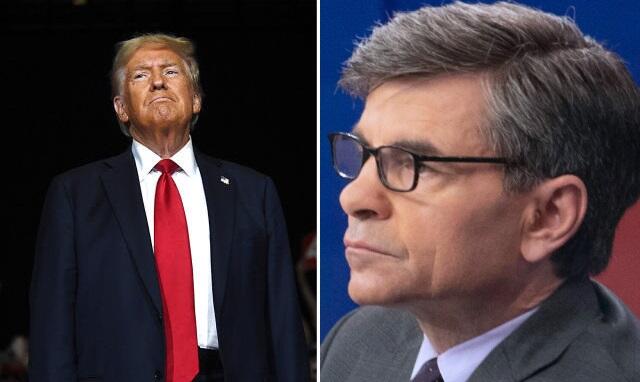In a recent development, ABC News and prominent anchor George Stephanopoulos agreed to a $15 million settlement with former President Donald Trump, stemming from a contentious interview in which Stephanopoulos implied Trump was “liable for rape.” This assertion emerged during an exchange with Rep. Nancy Mace (R-SC) regarding her experiences as a rape victim. During their discussion, Stephanopoulos made repeated references to a jury’s findings against Trump related to allegations made by E. Jean Carroll, which included claims of sexual abuse and defamation. This line of questioning sparked outrage from Trump, leading him to file a defamation lawsuit against Stephanopoulos. As part of the settlement, ABC News also agreed to contribute $1 million towards Trump’s legal fees.
The case highlighted a crucial distinction in the legal findings concerning Trump. Despite Stephanopoulos’s claims, a jury had found Trump liable for “sexual abuse,” not rape, according to New York law. Following the jury’s decision, Judge Lewis Kaplan clarified in a ruling that proving rape in a legal context did not negate the broader understanding of the term as commonly interpreted. This resulted in a misrepresentation by Stephanopoulos, who repeated his claims multiple times during the interview, potentially overstepping the bounds set by the jury’s findings. This situation illustrates the complexities of legal definitions in high-profile cases and the repercussions that can arise from miscommunication in televised media.
The settlement filed gives details on the terms agreed upon by both parties, allowing them to avoid a potentially lengthy and expensive trial. The agreement includes a $15 million payment from ABC News to a charitable foundation associated with Trump, designed in the tradition of presidential foundations. This component of the settlement indicates an effort to mitigate reputational damages associated with the interview and seek a resolution without further litigation. Additionally, the $1 million allocated for legal fees reflects the serious nature of Trump’s legal battles and the costs associated with defending himself against public allegations.
During the initial fallout from the interview, Stephanopoulos maintained a defiant stance, acknowledging that Trump’s lawsuit was an attempt to stifle journalistic inquiry. He contended that his phrasing was justified by the legal rulings in the ongoing cases that involved Trump, stating that he would not allow himself to be intimidated from fulfilling his responsibilities as a journalist. This sentiment encapsulates a broader tension between media personnel and public figures, where allegations can have immediate and profound effects, motivating legal action despite the complexities underlying the issues raised in interviews.
The settlement with ABC News represents just one victory among a series of legal skirmishes Trump has faced recently. Apart from this case, he garnered some favorable rulings on various complaints, which include dismissals of other lawsuits relating to the 2020 election and the mishandling of classified materials. His legal maneuvers against major news networks, such as the $10 billion lawsuit against CBS for perceived deceptive practices, indicate a continuing trend where Trump is seeking accountability from media entities that he accuses of misrepresenting his actions or character. These developments illustrate Trump’s broader strategy of leveraging the legal system as a means of asserting his narratives in the public domain.
In conclusion, the settlement between Trump and ABC News showcases the intricate intersection of media, law, and public discourse in a politically charged environment. It underscores the significance of language and the potential fallout from misinterpretations or overstatements in media reports about legal realities. This situation serves as a reminder of the delicate balance reporters must maintain when discussing sensitive subjects, particularly those involving serious accusations. As Trump continues to pursue his legal affairs, the outcomes will likely influence his public image and the media landscape in the foreseeable future, sparking conversations about responsible journalism and the ethical boundaries of reporting on high-profile litigations.

